
この記事は Archaeology の July/August 2024 版に掲載されています。
7 日間の Magzter GOLD 無料トライアルを開始して、何千もの厳選されたプレミアム ストーリー、9,000 以上の雑誌や新聞にアクセスしてください。
すでに購読者です ? サインイン
この記事は Archaeology の July/August 2024 版に掲載されています。
7 日間の Magzter GOLD 無料トライアルを開始して、何千もの厳選されたプレミアム ストーリー、9,000 以上の雑誌や新聞にアクセスしてください。
すでに購読者です? サインイン
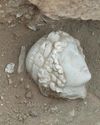
Digs & Discoveries - A Friend For Hercules - Archaeologists discovered a finely carved head depicting Apollo, god of the sun, music, and poetry.
While digging at the crossroads of the two main streets in the ancient city of Philippi in northern Greece, archaeologists discovered a finely carved head depicting Apollo, god of the sun, music, and poetry.
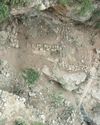
Digs & Discoveries - A Fortress Sanctuary - A sprawling 2,000-year-old fortress in the Zagros Mountains of Iraqi Kurdistan appears to have included a sanctuary dedicated to the ancient Persian water goddess Anahita.
A sprawling 2,000-year-old fortress in the Zagros Mountains of Iraqi Kurdistan appears to have included a sanctuary dedicated to the ancient Persian water goddess Anahita.
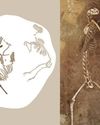
Like Cats And Dogs – Archeologist fund the skeleton of a male Eurasian lynx (Lynx lynx), a notoriously shy creature.
Оn the periphery of Zamárdi, an ancient lakeshore settlement in west-central Hungary, archaeologists uncovered a nearly five-foot-deep beehive-shaped pit with the skeletons of four adult dogs buried in successive shallow layers.
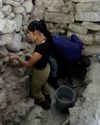
A Dynasty Born In Fire- How an upstart Maya king forged a new social order amid chaos
At the beginning of the Terminal Classic period (ca. A.D. 810-1000), many of the great kingdoms of the southern Maya lowlands-among them Tikal, Palenque, and Calakmul-were being abandoned or collapsing. For many years, scholars have assumed that most, if not all, the other kingdoms across the Maya world must have also been in steep decline.
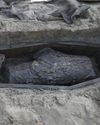
Medical Malfeasance - Archaeologists uncovered two coffins during excavations of a nineteenth-century cemetery in Quebec City that provide evidence of the illicit practice of diverting corpses for the study of human anatomy.
Archaeologists uncovered two coffins during excavations of a nineteenth-century cemetery in Quebec City that provide evidence of the illicit practice of diverting corpses for the study of human anatomy. Starting in 1847, medical students were required to have practical experience studying human anatomy, but legal options to procure cadavers were limited
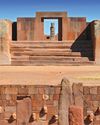
RISE AND FALL OF TIWANAKU
New dating techniques are unraveling the mystery of a sacred Andean city
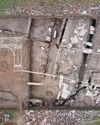
Making a Roman Emperor
A newly discovered monumental arch in Serbia reveals a family's rise to power in the late second century A.D.
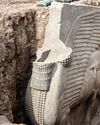
The Assyrian Renaissance
Archaeologists return to Nineveh in northern Iraq, one of the ancient world's grandest imperial capitals
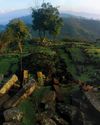
Java's Megalithic Mountain
Across the Indonesian archipelago, people raised immense stones to honor their ancestors
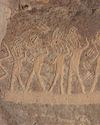
THE SONG IN THE STONE
Located in a desert gorge in southern Peru, Toro Muerto is one of the richest rock art sites in South America. It includes at least 2,600 boulders bearing petroglyphs, many featuring figures known as danzantes who appear to be dancing.